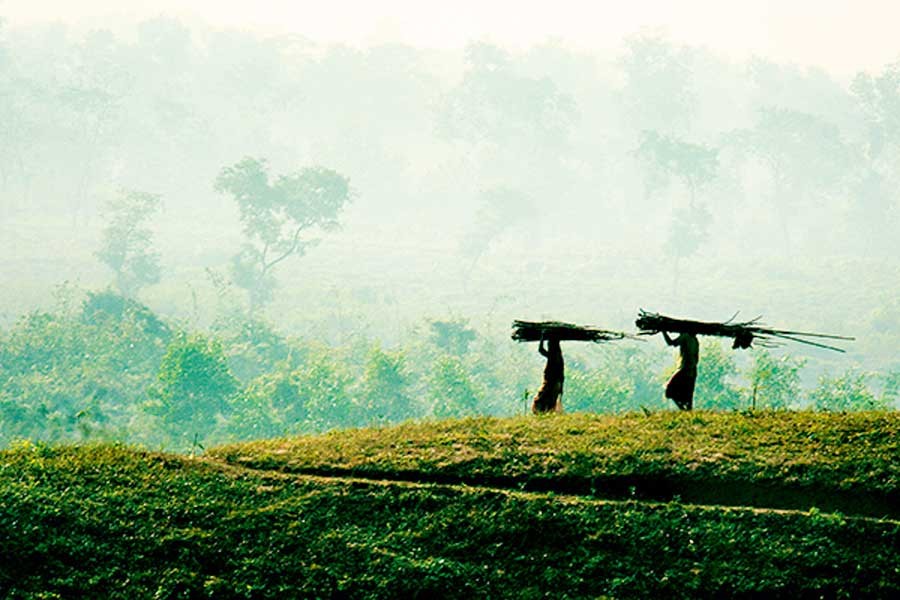The indicators identified to rank countries in terms of Gross Domestic Product (GDP), emerging economies, peace, liveability and much more are badly skewed. Basing these on 'western' models is a form of 'neo-colonisation' sans borders. Bangladesh ranks among the top nations in production of fish, potatoes and others yet that isn't taken into account. No one takes note that Agriculture, once the mainstay of GDP, is now the third consideration. Services make up the main contributor, followed by industry. What the indicators don't take into consideration is where Bangladesh has progressed from and to.
In the Peace index Bangladesh ranks 91st, well ahead of India and Pakistan. It's easy to rank Afghanistan as the worst and the low ranking of Syria and Iraq. What isn't mentioned is that the last two were peaceful and prosperous before the combined west bombed the daylights out of them and destroyed the institutions responsible for maintaining peace. Liveability is not just about utilities, shopping malls and facilities. Admittedly, Dhaka will score low. A combination of corruption, bad planning, self-centred politics and self-seeking governance has left a very promising city with a myriad of seemingly impossible solutions. Talk to an urban planner and they will provide a solution. Some of their recommendations could spark public outcry. Top of the list are those that have encroached with impunity upon government land, canals, rivers and lakes to build anything from palatial monstrosities to simple homes and industries.
Most of the indicators are dependent on surveys, usually written responses. How authentically and meaningfully they are done, leave a lot to be desired. Sample sizes are as important. The present definitions of sampling juxtaposed to cover populations are no longer valid due to the growing numbers. Nor do they make distinctions of realities in terms of geographical divides. Slums exist in most countries though by different names. Dwelling conditions are similar if not the same. Scandinavian and Nordic countries buoyed by smaller populations and strong economies will always score high. Of relevance is what populations need and that isn't factored in. With declining population figures and longer life-spans their problems are around the corner. Smaller populations are easier to police. As is the case with most of Europe, economic growth is declining and workforce shortages are reaching alarming levels.
Economies of countries differ in function. Just as administration is decentralised in some, informal economies rule elsewhere. Mr Kissinger's basket-case has had sustained GDP growth over a decade and a half, achieved agricultural miracles and boasts envious foreign exchange reserves compared to many. Sri Lanka has taken a loan, Pakistan would love to if it had the chance and India is increasingly worried about the continued export progress. Pakistan, in question is headed for a 7.3 per cent decline in GDP. India is playing with the figures but unlikely to reach Bangladesh's 7.0 per cent in the new fiscal year. Perhaps, to the chagrin of the World Bank, Asian Development Bank (ADB) and others, the ambitious Padma Bridge project financed mostly by Bangladesh, is headed for commissioning in June next year. With proper specialised planning this has the possibility of changing the socio-economic structure of the southern region.
The trillions of dollars debt that developed countries have chalked up will come back to bite them. Without one-sided trade deals with the developing countries they can't get their industries running full-tilt, thereby maintain or raise their living standards. No wonder the G-7, for all the debt issues have agreed on economic stimulus packages for other countries of the world. An agreement sobered by Angela Merkel who asked a pertinent question. Where will the money come from?
Our industries have found ways to finance capital machinery imports without bank loans, or so we are told. Imports are significantly down. There is a liquidity flush with little or no takers. Courtesy of the provision of legalising undisclosed income the real-estate sector is back on its feet.
Economists do not like it. Those who pay tax wonder why they do so. Then there is the argument over how to define undisclosed income and illegally obtained money.
For the simpleton, the innovative and not so sources of money changing hands and circulating in the informal economy is the obvious answer. As for money laundering, no one should point fingers at us. London is unofficially the biggest money-laundering system in the world -- just one of the many secrets that we aren't entitled to know about.


